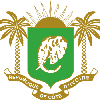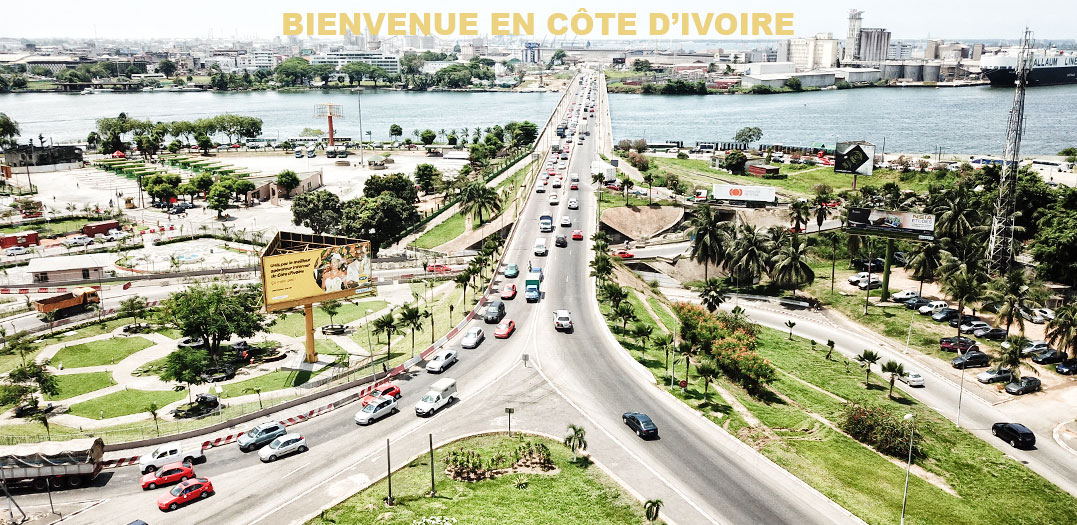Côte d’Ivoire is located in the western part of Africa. The land covers 322,462 km2 and has over 500 km of coastline. It is bordered to the south by the Atlantic Ocean, to the north by Burkina Faso and Mali, to the east by Ghana and to the west by Guinea (Conakry). While Yamoussoukro was officially declared the political and administrative capital of the country in 1983, Abidjan remained the economic, political and administrative center.
Côte d’Ivoire became independent from France on 7 August 1960. According to the current (new) constitution, which was adopted on 30 October 2016, Côte d’Ivoire is a democratic republic based on the separation of the executive, legislative and judicial branches.
Côte d’Ivoire is the leading economy in the West African Economic and Monetary Union (UEMOA) in terms of economic output (GDP) and, with approximately 24.3 million inhabitants, the country with the largest population in this emerging economic area.
The country has a huge touristic potential and a rich culture, tradition and history. Due to its geostrategic position and the fact that the country hosts major international organizations, such as the African Development Bank (AfDB) and the International Cocoa Organization (ICCO), both having their seat in Abidjan, Côte d’Ivoire is a role model for West Africa and beyond that also for Africa as a whole.




